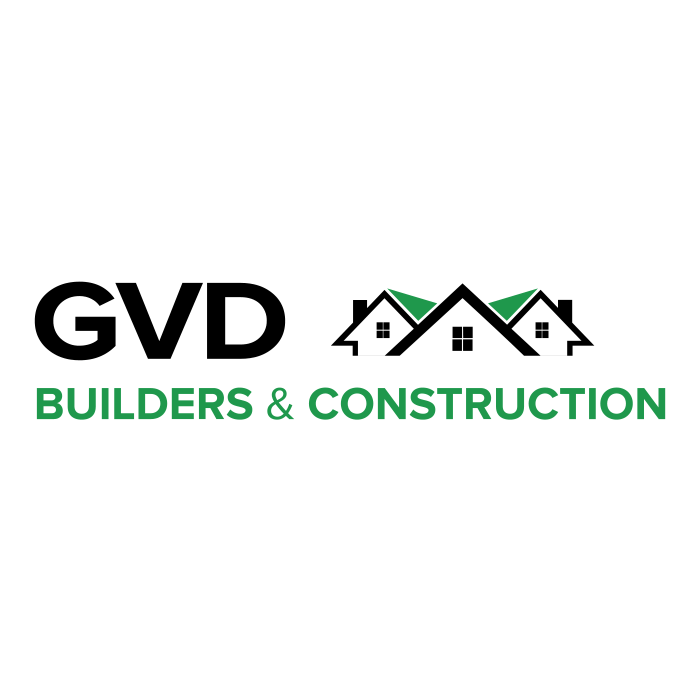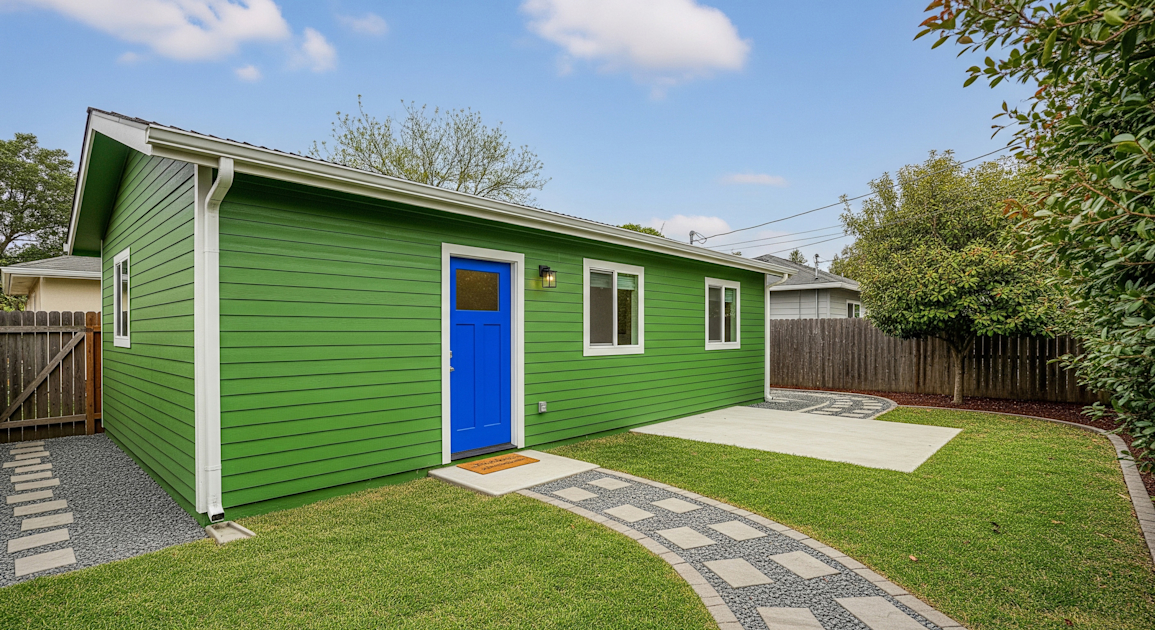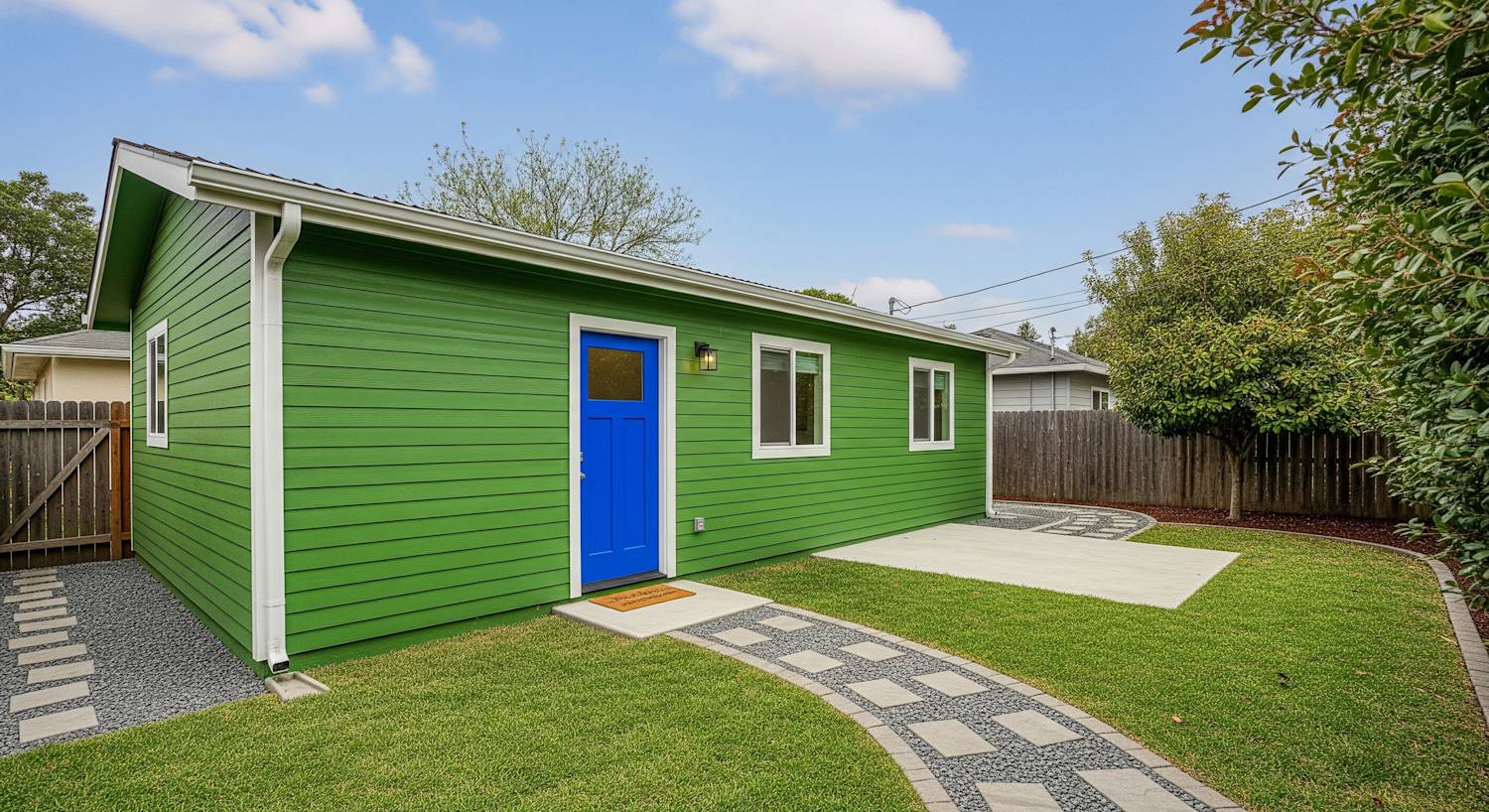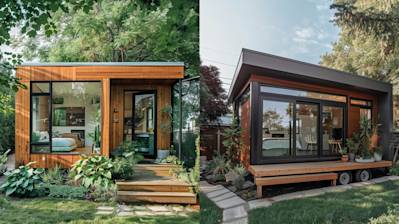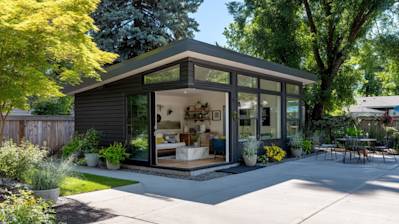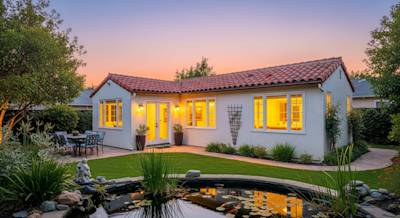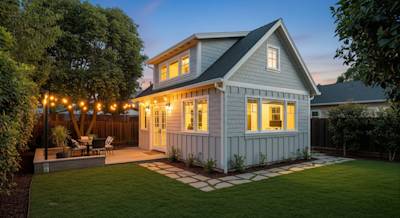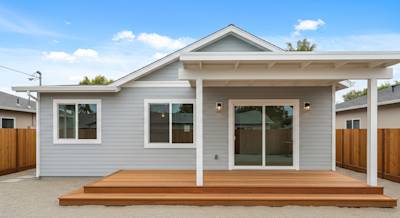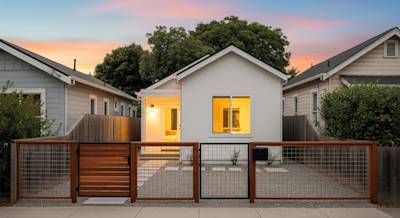In the vast and multifaceted realm of real estate, numerous categories and segments compete for the attention of investors. However, one mention-worthy sector that's gaining significant popularity is the Accessory Dwelling Units (ADU) market. This time-honored solution for improving living spaces has advanced to become a revolutionizing trend in modern real estate.
Start of Now: The Origin of ADU Real Estate
The origins of ADU real estate are intertwined with the concept of extended family living. Accessory Dwelling Units, also known as "granny flats", "in-law apartments", "backyard bungalows", or "secondary suites", are independent residential units that exist on the same lot as the primary residence.
The Rising Popularity of ADU Real Estate
Today, ADUs are enjoying a resurgence due for a variety of socio-economic reasons:
- Growing multi-generational families requiring additional living space
- Increasing demand for rental housing options
- The desire for a passive income stream through rent
- Increasing property value
Why Are ADUs Gaining Ground in Real Estate?
The rise of ADUs has been influenced by a combination of factors:
- Affordability: ADUs offer a more affordable housing solution in comparison to conventional houses, attracting a wider range of home seekers.
- Additional Income: They provide homeowners an opportunity to earn additional income by renting out, which helps offset mortgage payments.
- Space Optimization: They make the most efficient use of available land by providing a liveable space in unused areas.
- Societal Impact: ADUs can help facilitate multi-generational living, foster community connections, and provide housing for an aging population.
- Increased Property Value: Constructing an ADU can significantly increase property value and provide a good return on investment.
Legal Landscape & ADU Real Estate
Over the years, laws have been eased on ADUs, encouraging more homeowners to consider investing in this category. Areas like California have made sweeping changes to the legislation, thereby paving the way for the boom in ADU real estate.
Varieties of ADUs: Options to Consider
When it comes to ADUs, there are several options that you could consider:
- Detached ADUs: These are stand-alone units separate from the primary residence,
- Attached ADUs: These are attached to the primary residence but still offer private entrances,
- Garage Conversion ADUs: These convert unused or underutilized garage spaces into functional dwelling units,
- Basement ADU: These transform basements into a separate living area.
Understanding the ADU Building Process
Building an ADU involves several key steps:
- Plan: Decide on the type of ADU to build based on your needs and existing property structure.
- Design: After settling on an ADU type, design the layout, style, and utilities to ensure a functional and comfortable living space.
- Permits: Obtain necessary permits in line with local laws and regulations governing the construction of ADUs.
- Build: Engage a reputable construction firm to execute the project efficiently and to quality standards.
Exploring the Financials: ADU Real Estate Investment
Investing in ADU real estate has the potential to provide significant returns. However, costs can vary greatly depending on the type of ADU, location, finishes, and unexpected construction issues. It's essential to do your financial homework.
Potential Pitfalls in ADU Real Estate Investments
While ADU real estate shows significant promise, it doesn't come without potential pitfalls. These include:
- Regulations: Compliance with local codes and zoning ordinances might prove tricky.
- Financing: Securing financing can be challenging as not all lenders are familiar with ADUs.
- Building Process: Construction delays and cost overruns can impact your investment.
An Ever-evolving Landscape: Future of ADU Real Estate
The real estate market is a dynamic landscape, continually shifting gears in response to trends and economic tides. ADU real estate has proven to be a resilient, adaptable, and profitable venture that is likely to keep gaining popularity in the future.
Conclusion: Embracing the ADU Revolution in Real Estate
ADUs have emerged as a flexible housing solution responding to today's housing needs. By delivering affordability, adding value, and flexibly utilizing property, ADU real estate is a profitable investment avenue to explore.
In the real estate domain, keeping abreast with emerging trends is key to staying competitive and profitable. And no doubt, the ADU real estate trend is one to watch closely and, if possible, be a part of, in the coming years.
Frequently Asked Questions about Adu Real Estate
How Can I Benefit From Investing In ADU Real Estate?
Investing in ADU Real Estate can be profitable in several ways. For homeowners, it can serve the dual purpose of catering to extended family members while also providing an additional source of income if rented out. For investors, ADU properties can yield a high return on investment since they're typically rented at market rate and their construction cost is relatively cheaper than building a bigger house.
What Are the Different Types of ADUs?
ADUs come in various types. They can be detached, or stand-alone structures, attached to the primary house, or located within the existing home such as a basement or over a garage. They usually comprise a complete living space with a kitchen, bathroom, living area, and at least one bedroom, although designs may vary depending on the local zoning and coding rules.
How Are ADUs A Solution To Housing Challenges?
Accessory Dwelling Units are considered as an innovative, affordable, and effective option for adding much-needed housing in crowded cities. They can serve as a solution to accommodate a growing population without drastically changing the character of a neighborhood since ADUs are usually smaller and blend into existing architectural styles.
How Do I Decide My ADU Design?
The design and size of your ADU will mostly depend on your specific needs, budget, and local building codes. You could also consult with a professional architect or builder to assist you in designing an efficient and permissible accessory dwelling unit.
Are there Building Restrictions For An ADU?
Building restrictions for ADUs vary greatly from one location to another. Some jurisdictions may have certain limitations on the size, height, lot coverage, among other requirements. It is advisable to check with your local zoning department to get a clear understanding of the building codes relevant to ADUs before initiating construction.
Can I Use ADU Real Estate For Airbnb?
Many landlords are using ADU real estate for Airbnb or short-term rentals. This, however, depends on the local legislation in your city or county. Some zones allow for short-term rentals, while others may restrict use to long-term rentals or housing family members only. It’s always prudent to verify such laws to avoid legal issues later on.
Can I Get a Mortgage For An ADU?
Indeed, you can get a mortgage for an ADU. Various financing options are available for ADU construction depending on your circumstances and location. These include home equity loans, construction loans, renovation loans, and even some specific ADU loans.
What Are the Tax Implications of Owning ADU Real Estate?
Owning an ADU could potentially alter your tax circumstances. Rental income earned from an ADU is generally taxable. But at the same time, you may also deduct certain expenses related to the ADU property maintenance and depreciation. Please consult with a tax professional for more detailed information.
Pros of ADU Real Estate
Affordability
Owning a house, especially in high-cost cities, can be outside the reach for many individuals. ADUs (Accessory Dwelling Units) offer a more affordable option. Since they are typically smaller in size than the main houses, the costs associated with their construction and maintenance are also proportionately lower.
Additional Source of Income
Renting Out
Property owners can turn the ADUs into income-generating assets through renting them out. Given the growing demand for affordable housing, ADUs can provide a sustainable stream of income for homeowners.
Higher Property Value
Aside from renting out, the addition of an ADU can directly increase the market value of your property. Homes with ADUs tend to carry a higher purchase price in comparison with similar properties without ADUs.
Sustainable Living
Reduced Carbon Footprint
ADUs are often small in size, therefore typically consume less energy for heating, cooling, and electricity. As a result, they can contribute to reducing the overall carbon footprint at the household level.
Encourages Multi-generational Living
ADUs can facilitate multi-generational living. They could be used to accommodate older family members, offering them independent living spaces while keeping them close. This can also result in a potential decrease in assisted living or nursing home costs.
Cons of ADU Real Estate
Zoning Restrictions
One of the major challenges regarding ADU real estate is the zoning regulations. Many localities enforce stringent rules that may limit the size, appearance, location, and purpose of an ADU. There are also areas where ADU construction is not permitted at all.
Financial Considerations
Upfront Costs
While the cost of building an ADU is typically less than that of a full-sized home, it is still a significant investment. Depending on the fixtures, fittings, and architectural complexities chosen, the costs can escalate.
Possible Financing Hurdles
Financing the construction of ADUs can be another challenge for homeowners. Not all banks or lenders are willing to provide loans specifically for ADUs.
Rental Challenges
Liability Issues
Renting out the ADU comes with associated responsibilities and potential liability issues. Property owners could be held liable for accidents or damages occurring within the ADU.
Tenant Issues
Finding reliable tenants for the ADU can be a challenging task. Property owners will need to navigate the rental market, which may include issues such as rent collection, repairs, and maintenance, or dealing with problematic tenants.
Limited Space
Since ADUs are typically smaller than conventional houses, space can be a major constraint. The design might need to follow a minimalistic approach which may not satisfy everyone’s needs or preferences.
In conclusion, the choice of going with ADU real estate largely depends on the individual circumstances, financial capacity, and local zoning regulations. It is a decision that can provide homeowners with an opportunity to generate additional income, while also contributing to sustainable living practices. However, it also comes with its share of challenges and restrictions.
Summary
It's incredible to see how adu real estate continues to shape urban landscapes. With a soaring demand for affordable housing and the need for efficient land use, an increasing number of people are turning to this sort of alternative dwelling unit. Not only do ADUs provide a fantastic solution to the pressing housing issues of the day, but they also create opportunities for homeowners to generate a steady stream of passive income by renting them out.
The impact of adu real estate on the property market is also worth noting. It offers investors a lucrative niche with promising returns and diversifies their portfolio. And for homeowners, it's a boon, increasing property value and offering potential income options that weren't there before. As ADUs become more mainstream, we expect to see a shift in traditional property buying and renting behaviors.
At the same time, adu real estate also promotes minimalist living and sustainable development. As people shift to smaller, more efficient homes, they are also forced to reconsider their consumption habits and lifestyle choices. The surge of ADUs is not just a real estate trend, but a move towards a future where urban life is affordable, environmentally friendly, and efficient.
About GVD Builders
GVD Builders is a locally operated, Sacramento, CA-based company that's got a reputation for creating and renovating stunning homes throughout the area. With a focus on blending aesthetics and functionality in our architectural designs, we pride ourselves in delivering projects that sport top-notch craftsmanship. Passionate about everything building and remodeling, our expert team provides personalized service aiming to deliver beyond clients' expectations. Apart from playing with bricks, steel, and mortar, we value and foster strong relationships with our clients, making transparency and commitment our watchwords. Stick around and explore what GVD Builders is all about!
The content provided here is intended for informational purposes only and should not be considered professional advice. We recommend consulting with a qualified specialist before making any decisions related to your project. Pricing, product availability, and specifications are subject to change without notice. Any references to specific brands or products represent our opinions and do not constitute official endorsements or guarantees of performance.
